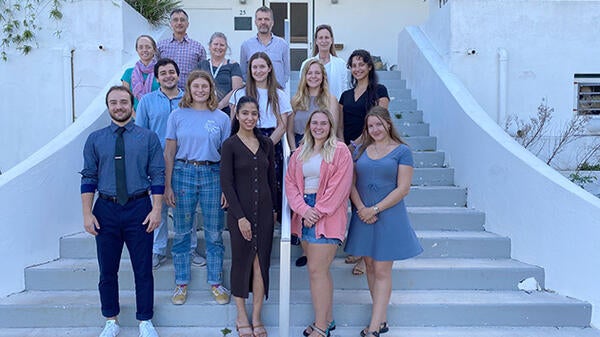In 1991, BIOS became a site for the competitive and prestigious National Science Foundation (NSF) Research Experiences for Undergraduates (REU) program, which provides participants with the opportunity to work alongside the Institute’s faculty and staff on research projects in a variety of topics in ocean sciences.
Congratulations to the 2015 REU Students (and their BIOS Mentors)
November 20, 2015
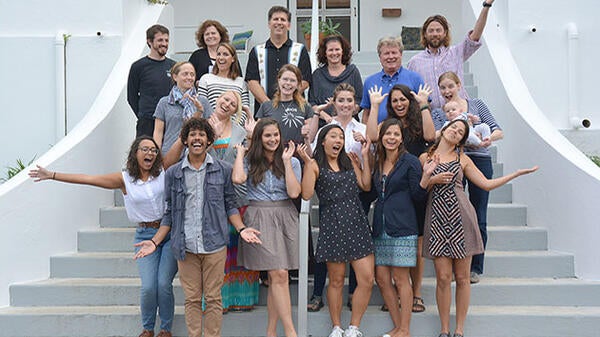
After making their final presentations for the semester, students with the Research Experiences for Undergraduates (REU) program posed with their mentors (BIOS faculty and staff) outside Wright Hall on campus. The program concluded November 21; during their three months at BIOS, students focused on independent projects on topics that ranged from the molecular biology of marine organisms to the environmental chemistry of Bermuda’s atmosphere and inshore waters.
New Programs at BIOS Pair Lehigh Students with Real-world Research Problems
April 05, 2016
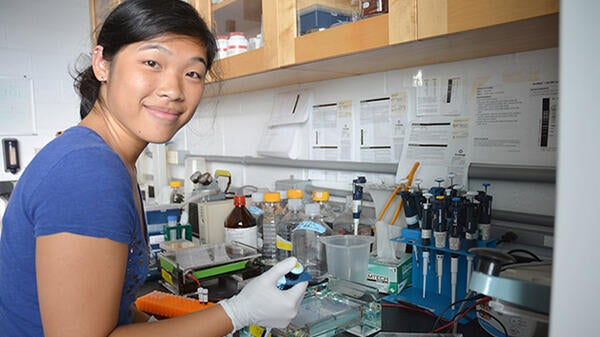
Students from many disciplines can hone career skills, broaden perspective, and find inspiration at BIOS
Bright Minds in Bermuda Gather at BIOS for Computer Challenge
April 05, 2016
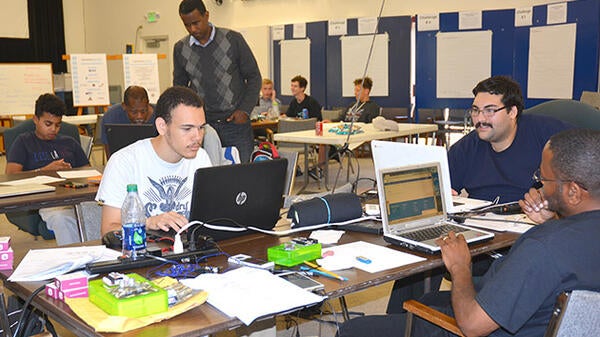
Fishackathon 2016 took place on Earth Day weekend (April 22 to 24) in 42 locations around the world, including, for the first time, Bermuda. The event brought together computer programmers to find creative ways to collect and analyze data for solutions to fisheries and marine issues.
May the Best Underwater Robot Win
May 05, 2016
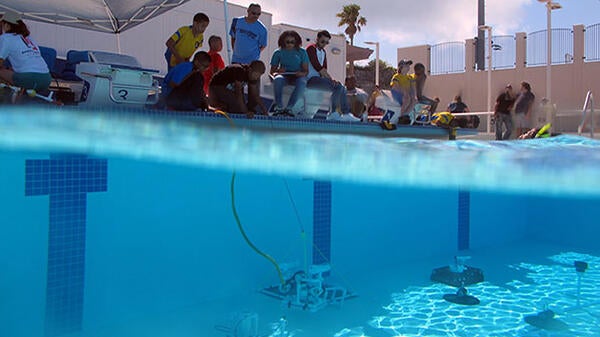
They came with robots in their arms and dreams of undersea victories. On April 30, more than 100 Bermudian students met at the National Sports Centre pool to compete in the island’s second annual Mid Atlantic Robotics IN Education (MARINE) underwater robotics challenge, with lead donor support from HSBC.
Bermudian Students to Gather for Remotely Operated Vehicle (ROV) Challenge
April 05, 2016
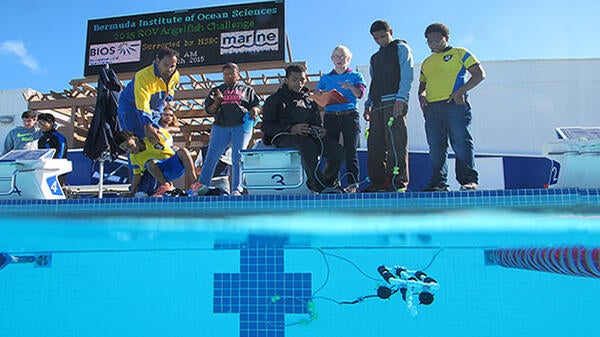
Twenty-eight teams from nine schools and educational organizations will converge on the National Sports Centre on Saturday, April 30, for the 2016 MATE Bermuda Regional ROV Challenge. The program, hosted by BIOS, is part of the Mid Atlantic Robotics IN Education Program (MARINE), with lead donor support from HSBC.
Looking Back, and to the Future: the Bermuda Program at 40
April 05, 2016
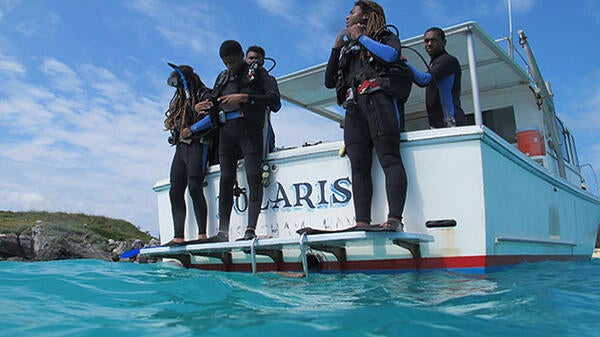
BIOS training leads to diverse careers in marine and atmospheric sciences, and beyond
Coral Reef Symposium Held on Hawaii
July 09, 2016
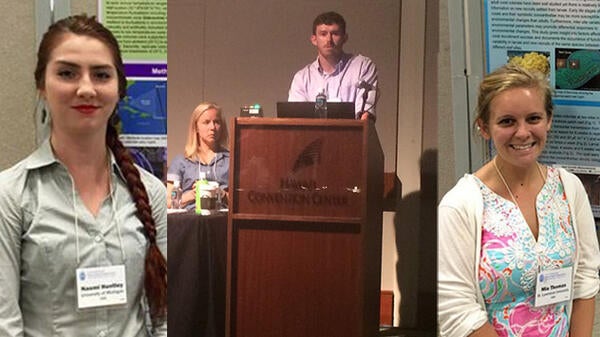
The 13th annual International Coral Reef Symposium (ICRS) convened in Honolulu, Hawaii in June with more than 2,500 scientists, policy makers and managers in attendance from 70 countries. The conference theme ‘bridging science to policy’ provided students and professionals with the opportunity to communicate their recent findings and ongoing research programs to an audience with the shared goal of improving coral reef conservation through the application of science. BIOS associate scientist Eric Hochberg co-chaired a session on remote sensing of coral reefs, during which he gave a presentation about the NASA-funded COral Reef Airborne Laboratory (CORAL) mission (of which he is the Principal Investigator). This symposium also saw three BIOS alums from the NSF Research Experiences for Undergraduates (REU) program. Michael Wooster, Naomi Huntley and Mia Thomas (pictured) presented their research in both oral presentations and poster sessions, demonstrating the positive impact this program has on the careers of young scientists.
MAGIC Room Opens at BIOS
August 10, 2016
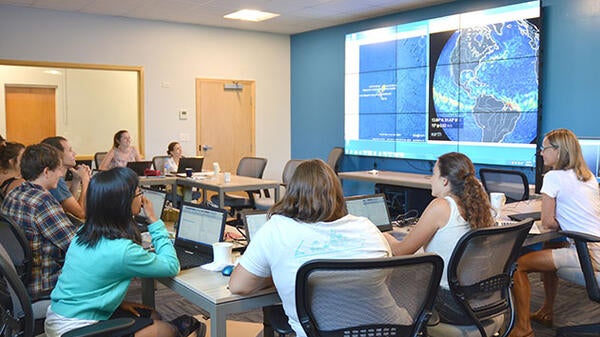
BIOS welcomed the first student users of its new high-tech facility known as the MAGIC Room—a room designed to facilitate data analyses, scientific collaboration, and learning among students and visitors from Bermuda and abroad. Students sat at a large, U-shaped table in swivel chairs that pivoted for views of multiple screens, including a multi-screen video wall at the front of the room and an 84-inch high-definition touchscreen on an adjacent wall. As underwater gliders roamed the ocean 50 miles away, students discussed the gliders’ near-real time measurements of oxygen, salinity, current strength, and other incoming physical and chemical data.
A Shared Experience, 45 Years in the Making
August 10, 2016
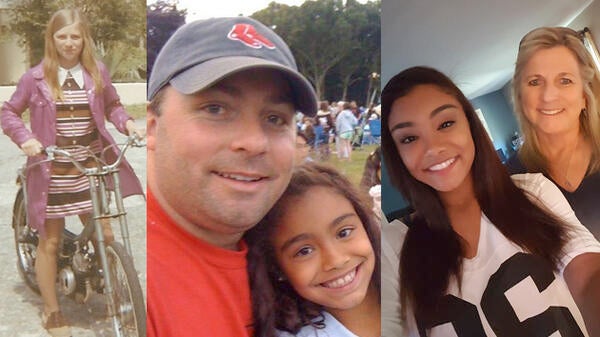
In 1969, an educator near the town of Vernon, Connecticut began organizing one-week trips for local middle and high school students to visit BIOS, then the Bermuda Biological Station for Research (BBSR). The summer trips, known as the Vernon Bermuda Workshop, quickly gained a reputation among students as a magical chance to fly south, explore the island, take field trips into caves and to coral reefs, witness researchers in their laboratories and conduct small research projects on Bermuda wildlife.
